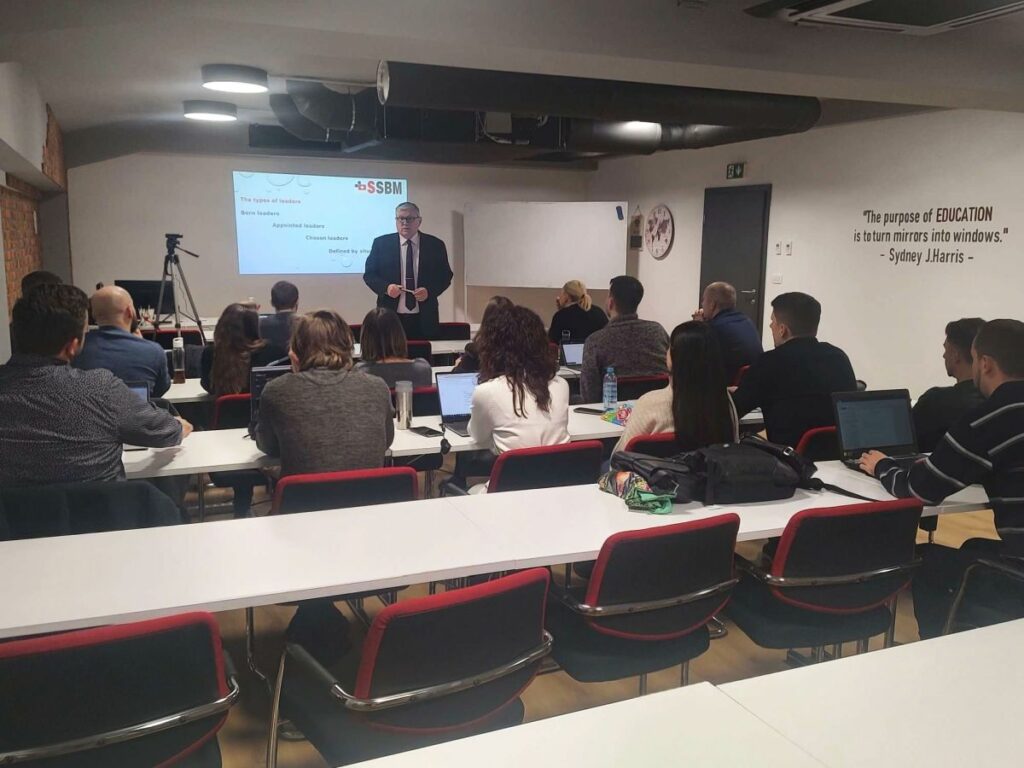Great leadership is not just about making strategic decisions or managing tasks. It’s about inspiring, influencing, and guiding people toward a shared vision. While technical expertise and experience matter, the most effective leaders distinguish themselves through soft skills—those intangible yet crucial abilities that foster strong relationships and create high-performing teams.
Below, we explore the top 10 soft skills that make you a great leader, explaining why they matter and how you can develop them to maximize your leadership potential.

Top 10 Soft Skills That Make You a Great Leader
1. Emotional Intelligence (EQ)
Emotional intelligence is the foundation of effective leadership. Leaders with high EQ understand their emotions and the emotions of those around them, which allows them to build strong connections and maintain a positive work environment.
How to Improve Emotional Intelligence:
- Self-awareness: Regularly reflect on your emotions and reactions.
- Empathy: Listen actively and acknowledge others’ feelings.
- Self-regulation: Manage stress effectively and respond to challenges with composure.
2. Communication Skills
A great leader must be a clear, concise, and persuasive communicator. Whether addressing a large audience or having a one-on-one conversation, the ability to convey thoughts effectively is key.
How to Improve Communication Skills:
- Active listening: Focus on understanding rather than just replying.
- Clarity and brevity: Avoid jargon and be direct.
- Body language: Maintain eye contact and open gestures for better engagement.
3. Adaptability
In today’s rapidly changing world, leaders must embrace change and guide their teams through uncertainty. Adaptability allows leaders to stay ahead of challenges and maintain resilience in the face of adversity.
How to Improve Adaptability:
- Stay informed: Keep up with industry trends and shifts.
- Encourage innovation: Be open to new ideas and perspectives.
- Develop a growth mindset: See challenges as opportunities for learning.
4. Conflict Resolution
A true leader knows how to navigate and resolve conflicts in a way that strengthens relationships rather than damages them. Effective conflict resolution fosters a positive workplace culture and ensures team cohesion.
How to Improve Conflict Resolution:
- Stay neutral: Approach conflicts with an objective mindset.
- Encourage open dialogue: Create a safe space for team members to voice concerns.
- Seek win-win solutions: Focus on outcomes that benefit all parties.
5. Decision-Making Skills
Leaders are constantly required to make important decisions. Strong decision-making skills enable leaders to analyze situations, weigh risks, and choose the best course of action.
How to Improve Decision-Making Skills:
- Gather relevant information: Base decisions on facts, not emotions.
- Evaluate options critically: Consider short- and long-term impacts.
- Be decisive: Trust your judgment and act with confidence.
6. Delegation and Empowerment
A great leader understands the importance of delegating tasks to the right team members while empowering them with trust and responsibility.
How to Improve Delegation Skills:
- Know your team’s strengths: Assign tasks accordingly.
- Set clear expectations: Define roles and responsibilities.
- Provide support: Offer guidance without micromanaging.
7. Time Management
Effective time management ensures leaders can prioritize tasks, meet deadlines, and maintain a work-life balance while leading their teams efficiently.
How to Improve Time Management:
- Use productivity tools: Implement calendars, task lists, and project management apps.
- Prioritize tasks: Focus on high-impact activities first.
- Avoid multitasking: Concentrate on one task at a time for better efficiency.
8. Motivation and Inspiration
A leader’s energy and enthusiasm can ignite passion within their team, encouraging them to perform at their best. Motivation is not just about rewards but about creating a sense of purpose.
How to Improve Motivational Skills:
- Lead by example: Show dedication and commitment.
- Recognize achievements: Celebrate team successes.
- Encourage personal growth: Provide learning and development opportunities.
9. Active Listening
Great leaders do more than just hear—they actively listen to their employees, clients, and stakeholders, fostering a culture of respect and collaboration.
How to Improve Active Listening:
- Give full attention: Avoid distractions during conversations.
- Ask thoughtful questions: Encourage deeper discussions.
- Summarize and validate: Repeat key points to show understanding.
10. Creativity and Problem-Solving
Innovation is driven by leaders who think outside the box and encourage creative problem-solving. Being able to approach challenges with fresh perspectives is a hallmark of strong leadership.
How to Improve Creativity and Problem-Solving Skills:
- Encourage brainstorming: Foster an environment where new ideas are welcomed.
- Challenge assumptions: Question traditional approaches.
- Be open to failure: Learn from mistakes and refine strategies accordingly.
Soft skills – Final Thoughts
Mastering these top 10 soft skills will set you apart as a great leader. Developing emotional intelligence, communication, adaptability, and problem-solving abilities will help you build stronger relationships, make better decisions, and inspire those around you.
Did you find this blog useful? Read more SSBM blogs here.

